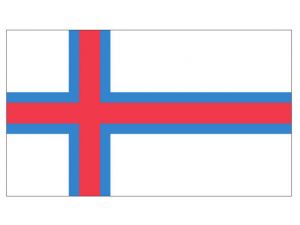Language/Faroese/Grammar/Negation
Hi Faroese learners! 😊
In this lesson, we will be discussing the basics of negation in Faroese. Negation is an important part of any language, and it is essential to understand how to use it correctly in order to communicate effectively. We will look at the different ways to express negation in Faroese, as well as some examples of how to use them. So let's get started!
Negation in Faroese
Negation in Faroese is expressed in a few different ways. The most common way is to use the word ikki (not). This is used to negate verbs, adjectives, and adverbs. For example:
| Faroese | Pronunciation | English Translation |
|---|---|---|
| Eg ikki kann | /ɛɣ ˈiːkɪ kan/ | I cannot |
| Tað er ikki gott | /tɔːð ɛɾ ˈiːkɪ ɡɔt/ | That is not good |
| Hann løtur ikki | /han ˈlœːtʊɹ ˈiːkɪ/ | He does not listen |
Another way to express negation is to use the word einki (nothing). This is used to negate nouns and pronouns. For example:
| Faroese | Pronunciation | English Translation |
|---|---|---|
| Eg havi einki | /ɛɣ ˈhɑːvi ˈeːŋkɪ/ | I have nothing |
| Tað er einki | /tɔːð ɛɾ ˈeːŋkɪ/ | That is nothing |
| Hann hevur einki | /han ˈheːvʊɹ ˈeːŋkɪ/ | He has nothing |
Finally, you can also use the word ongin (no one) to negate people. For example:
| Faroese | Pronunciation | English Translation |
|---|---|---|
| Ongin kann | /ˈɔŋɪn kan/ | No one can |
| Tað er ongin | /tɔːð ɛɾ ˈɔŋɪn/ | That is no one |
| Hann hevur ongin | /han ˈheːvʊɹ ˈɔŋɪn/ | He has no one |
It is important to note that these words can also be used in affirmative sentences. For example, ikki can be used to mean "very" or "really", and einki can be used to mean "something".
Examples
Now let's look at some examples of how to use negation in Faroese.
| Faroese | Pronunciation | English Translation |
|---|---|---|
| Eg skal ikki fara | /ɛɣ skɑːl ˈiːkɪ ˈfɑːɹɑ/ | I will not go |
| Tað er ikki gott | /tɔːð ɛɾ ˈiːkɪ ɡɔt/ | That is not good |
| Hann hevur einki | /han ˈheːvʊɹ ˈeːŋkɪ/ | He has nothing |
| Ongin veit | /ˈɔŋɪn veːt/ | No one knows |
| Eg havi ikki gjørt tað | /ɛɣ ˈhɑːvi ˈiːkɪ ˈjœːɹt tɔːð/ | I have not done that |
As you can see, negation in Faroese is quite straightforward. Just remember to use the correct word for the type of sentence you are trying to express.
Conclusion
In conclusion, negation in Faroese is an important part of the language. It is essential to understand how to use it correctly in order to communicate effectively. We have looked at the different ways to express negation in Faroese, as well as some examples of how to use them. Now it's time to practice!
Practice
To improve your Faroese Grammar, you can also use the Polyglot Club website. Find native speakers and ask them any questions!
➡ If you have any questions, please ask them in the comments section below.
➡ Feel free to edit this wiki page if you think it can be improved. 😎

